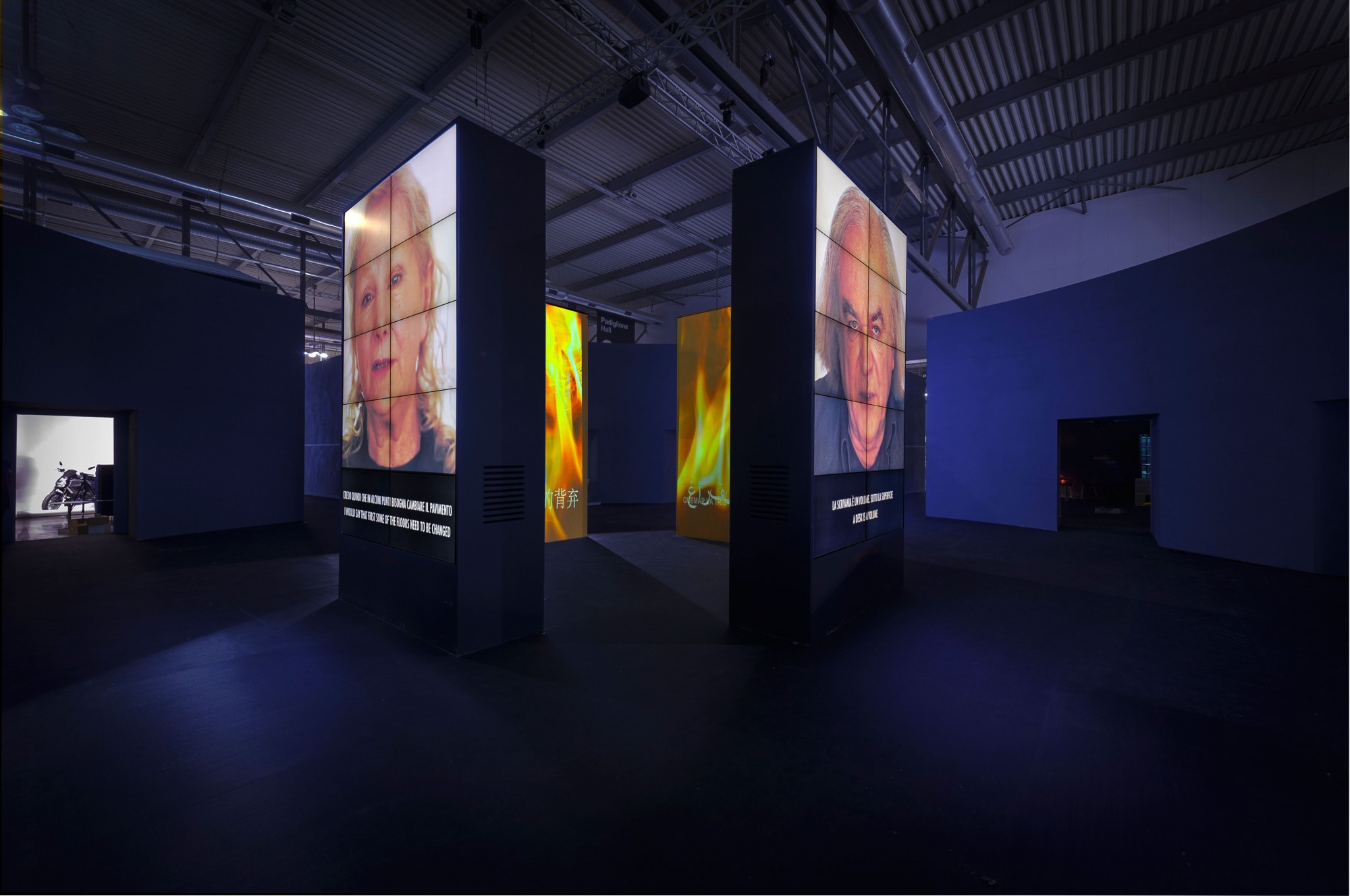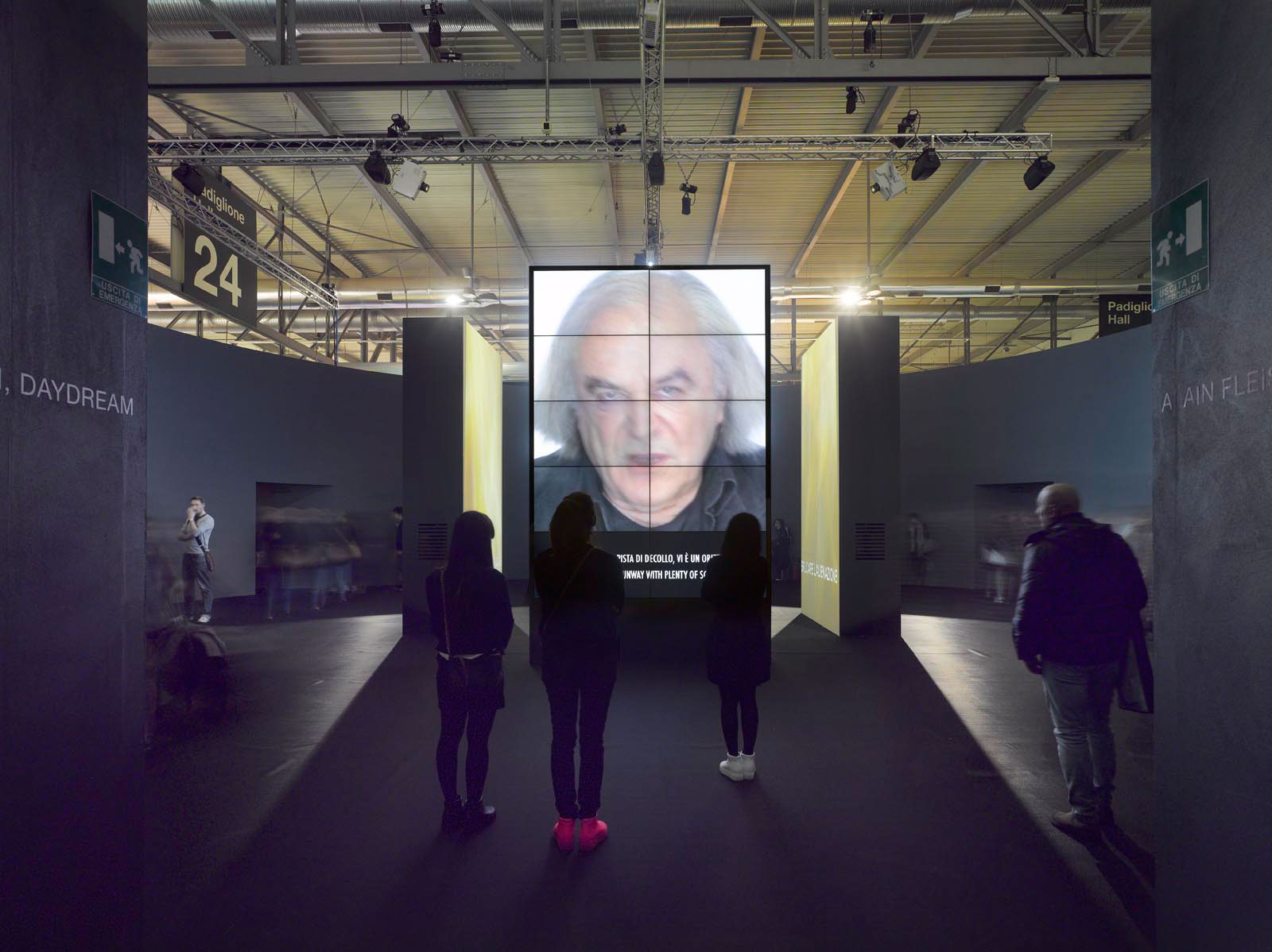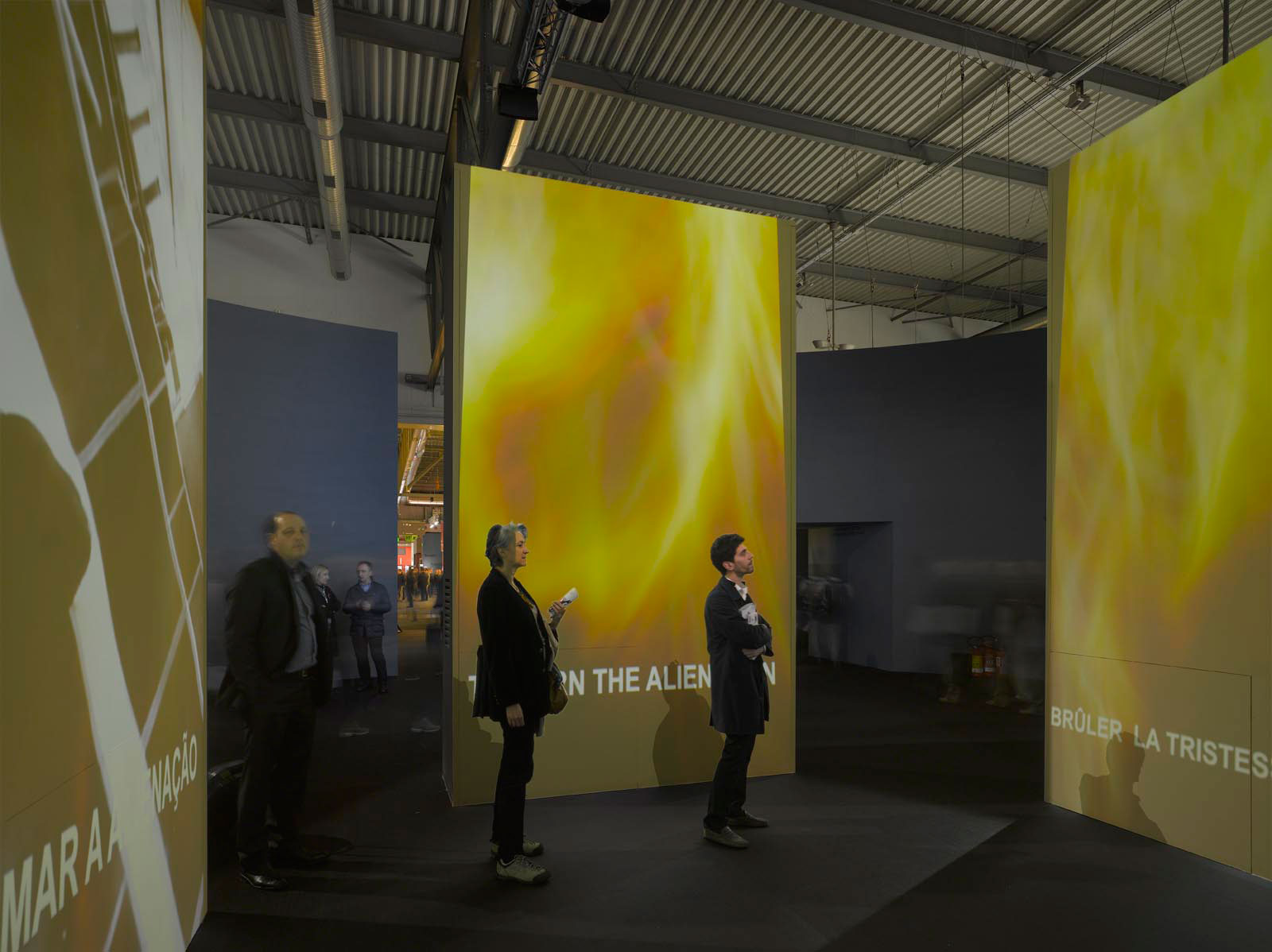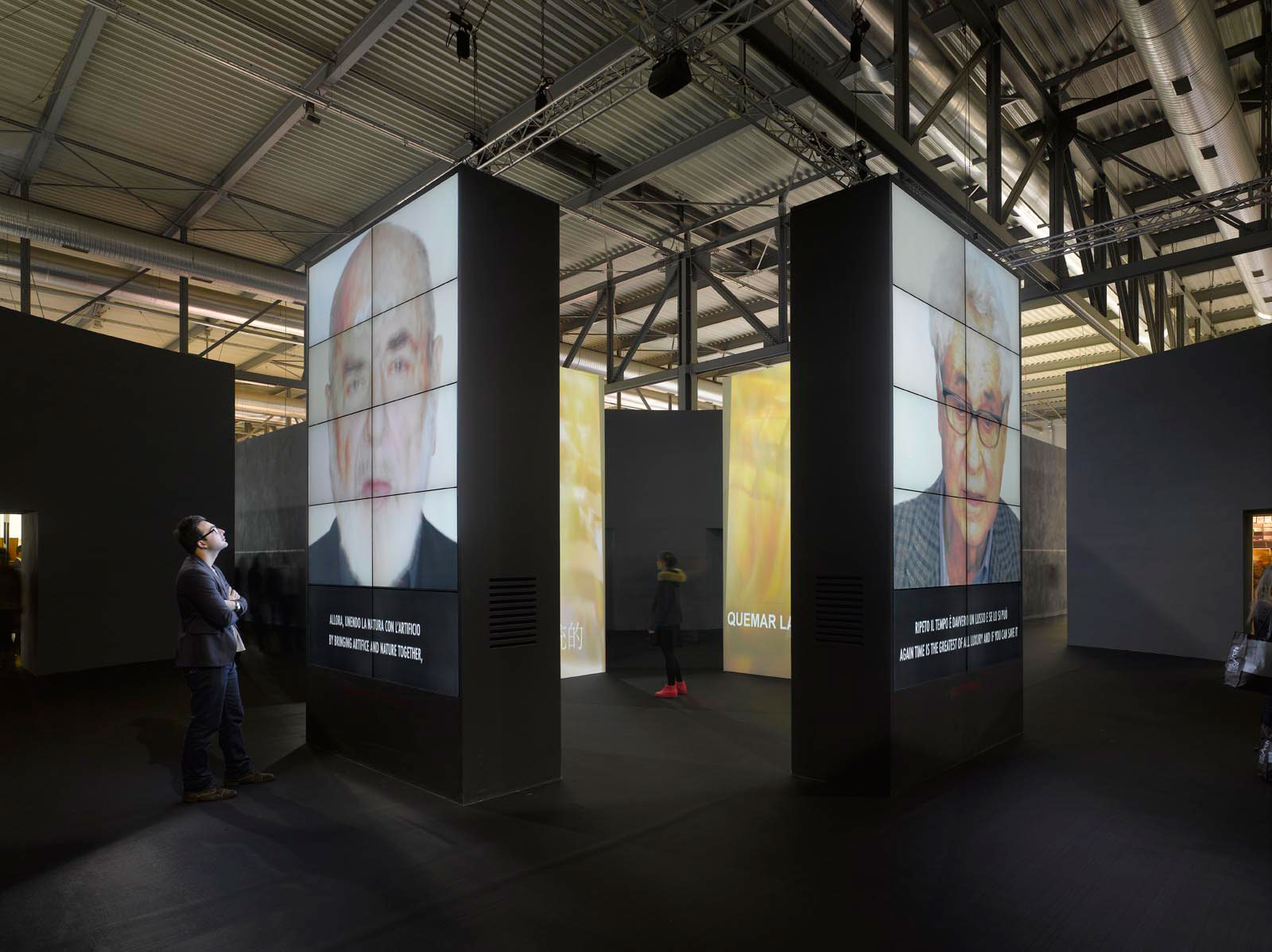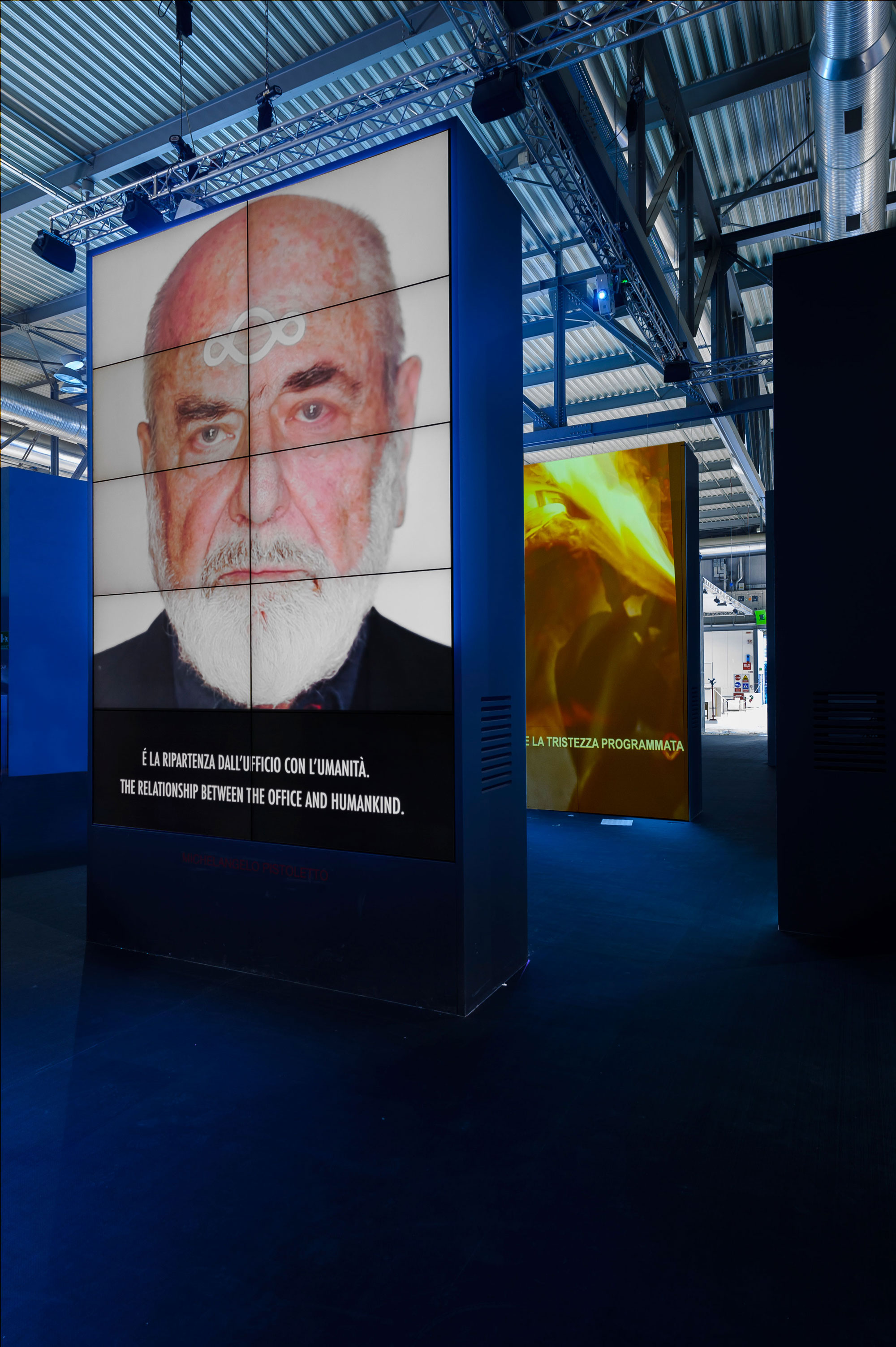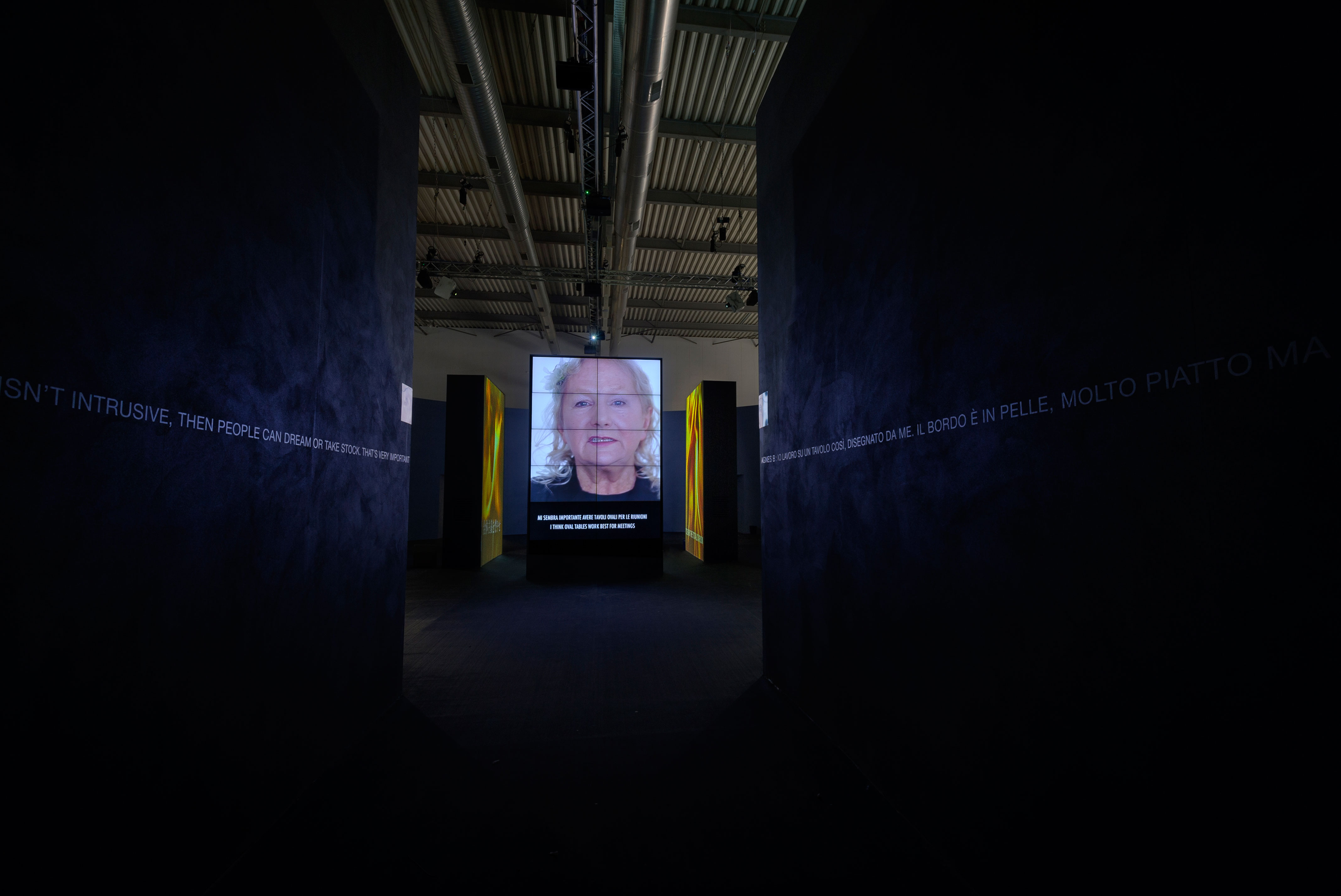4 SAGES AND THE OFFICE - Milan - italy
2013 - SCENOGRAPHy
AGNES B:
…if things are not immaculate, or if the furniture isn’t intrusive, then people can dream or take stock. I think that’s very
important. They need to have a revitalising effect, take people out of themselves, even if all they can see are ceilings or the tops of walls. In Paris we’re lucky enough to have a constantly-changing sky. This sky needs to be brought into these spaces, either pleasurably filtered or just as it is, it depends from your mood. Light is of prime importance, obviously.
ELIOTT ERWITT:
My idea of an office is that it should be very close from where I live ; in my own place.
I live in the eight floor and I have a studio on the ground floor, it saves on taxis and it saves on time, that, so if you can use your time intelligently rather than in traffic, then I think you have achieved some measure of freedom. it makes your time more efficient, and after all time is really all we have.
ALAIN FLEISHER:
Secrets, memories, mysteries lie beneath it… the surface of a desk is a kind of landing strip –I am fond of my desk, just as
I am fond of my car, and there is a certain analogy between the two objects: both provide an opportunity for travel – my car
enables my physical self to travel through space and my desk enables my mind to travel, plan, daydream.
MICHELANGELO PISTOLETTO:
Offices contain artificiality and technology.
Technology is taking over our world and we are in danger of being robots, becoming robots. In order to create the Third Paradise, we have to rediscover humanity; we need to become natural beings again. Thus, by bringing artifice and nature together, we will be able to create a new society, with offices as our starting point.


